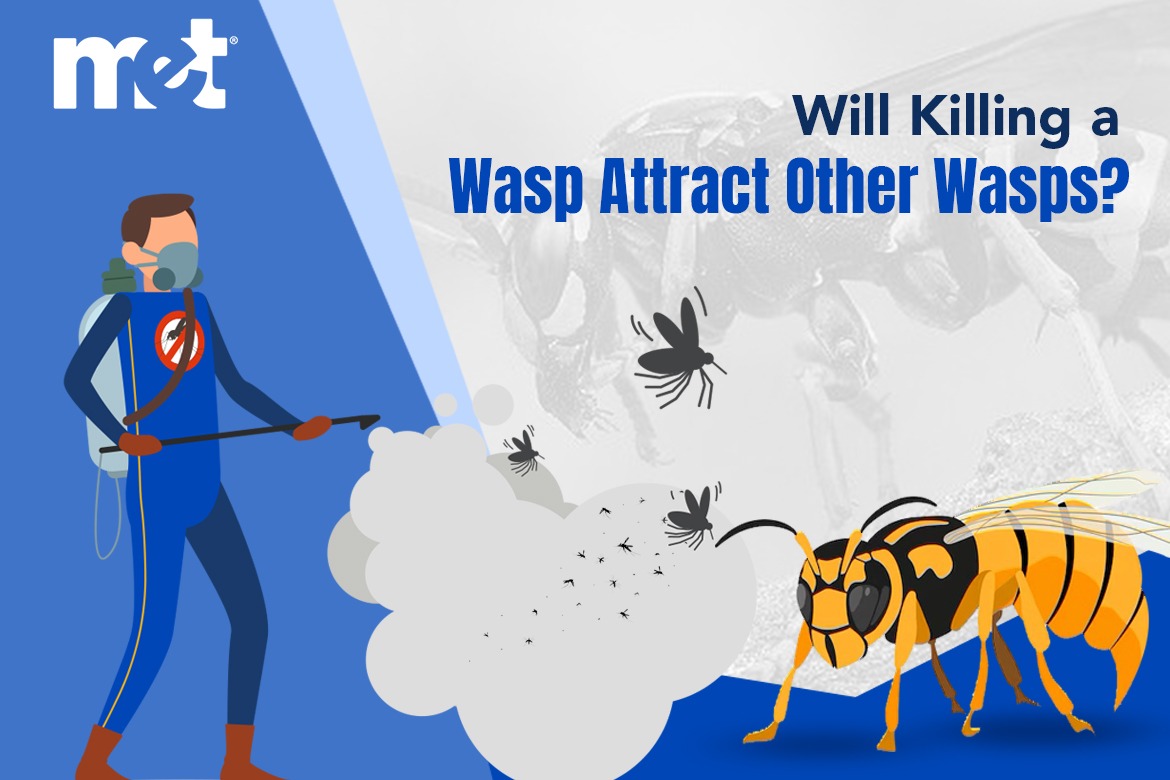We’ve all been there—enjoying a nice day outdoors, or just sitting quietly in our homes, when a wasp suddenly appears. You try to shoo it away, but somehow it keeps coming back. So, what happens if you kill a wasp? Will it just go away, or will you be dealing with a whole swarm of them soon after? It’s a fair question, and the answer might surprise you.
Why Wasps Are Attracted to Their Own Kind
When a wasp is killed, it releases a chemical scent into the air, almost like a little distress signal to other wasps nearby. Think of it like sending out a flare that says, “Danger here!” This isn’t just an “oops” moment; it’s a full-on alert to the rest of the colony. Other wasps might come to check out what’s going on, or even worse, they may become more aggressive in defending their nest.
It’s not about the wasp being vindictive—it’s their way of keeping things in check, protecting their home and themselves. So, the answer to “Will killing a wasp attract more?” is yes, unfortunately, it can.
What Should You Do Instead?
If you spot a wasp or two around, the instinct might be to swat them away. But keep in mind, this could be just the tip of the iceberg. Instead of making things worse by killing them, try to gently shoo them out or trap them in a jar and release them outside. If you spot a nest or you feel the situation could escalate, it’s best to call in the pros.
Trying to handle it yourself could make things more complicated (and frankly, a little scary), especially if you’re dealing with a wasp nest or a larger infestation. That’s where calling a pest control service comes in handy. A pest company in Singapore like MET can safely and effectively handle the situation, ensuring that your home or office stays pest-free without any unnecessary risks.
Why MET Is the Right Choice
At MET, we understand the behavior of wasps and other pests. Our expert team knows how to remove them safely, without the chance of triggering more unwanted visitors. Whether it’s a single wasp or a full-blown nest, you can count on our pest removal in Singapore services to take care of it. No more wondering if killing a wasp will attract others—leave that worry to the professionals!

Don’t wait for pests to become a problem!
For pest solutions and expert advice
Conclusion
So, to sum it up—yes, killing a wasp can attract more of them. Instead of risking a swarm, it’s always best to handle the situation calmly and safely. If you’re dealing with more than just a couple of wasps, reach out to MET service in Singapore for professional pest control services. Our team is here to ensure your home stays wasp-free, and you don’t have to worry about attracting even more.
FAQs
Dead wasps can actually attract other wasps because they release a chemical pheromone that signals danger, potentially leading more wasps to the area.
Yes, when a wasp stings, it releases an alarm pheromone that can attract more wasps to the area, increasing the risk of further stings.
Wasp traps can attract more wasps by releasing scents that mimic the presence of food or a potential nesting site. However, if used correctly, they can help reduce the number of wasps over time.
Stay calm and avoid swatting at the wasp, as quick movements may provoke it. Slowly and carefully move away from the area to give it space.
Wasps are typically attracted to sugary foods, sweet drinks, and scents like perfumes or floral fragrances. They may also be drawn to food remnants during outdoor activities.
Insecticidal sprays designed for wasp control can kill wasps instantly upon contact. You can also use a mixture of soapy water, which suffocates them.
Yes, yellow jackets release alarm pheromones when killed, which can attract more yellow jackets to the area, increasing the risk of being stung.
To avoid attracting wasps, wear light-colored clothing, avoid strong perfumes or sweet-smelling lotions, and refrain from swatting at them. Move away slowly from the area.
A dead wasp can mean that it’s either naturally died, been killed, or is part of a larger infestation. Its death can signal danger to other wasps, leading them to become more aggressive.
Killing a bee doesn’t attract more bees like it does with wasps, but it can release alarm pheromones that may make other bees more defensive.
Yes, staying still is often the best approach if a wasp is near. Sudden movements may trigger an aggressive response, while calm behavior helps avoid alarming the wasp.


